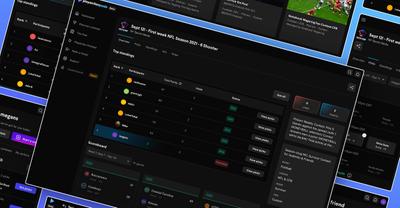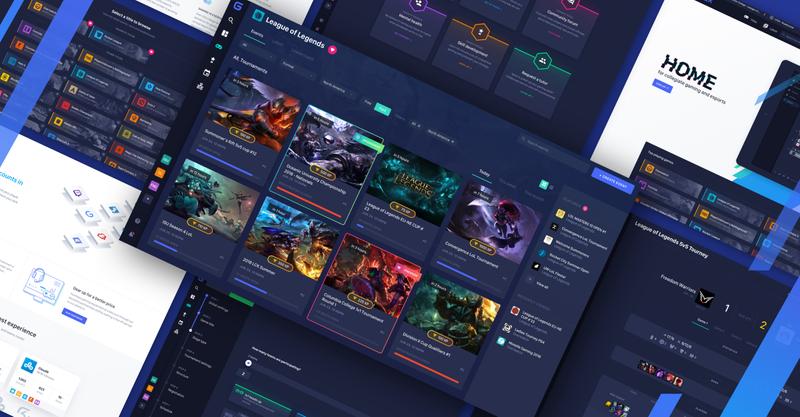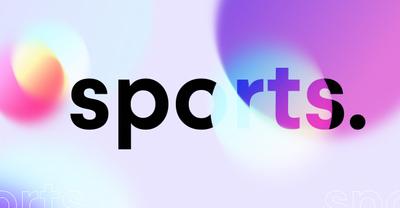PlayAction Pools
a sports pool platform with a new edge for running pools
purpose
PlayAction Pools is a sports pool hosting platform that makes it easy to create contests in minutes and invite friends and family along with all the management tools needed to keep your season running.
We were approached early in the company formation and acted as product consultants through brand name ideation as well as product design and marketing strategy, before we ultimately designed and built the platform for our client.
The market is not limited in options for other sports pool hosting products but the tools historically are dated in their UI/UX and can be too feature-heavy with overwhelming options for the average player. Instead, we set out to create a platform that relies on a clean and standard interface with simple to understand features to get users on the platform and stay there.
services
- ui/ux
- branding
- platform development
- integrations
- consultation & strategy
making a brand as bold as its ambitions
brand strategy
Our naming process produced dozens of names, culminating in a handful of top candidates. Ultimately “PlayAction Pool” captures the feeling of competition, things in motion, and the purpose of the platform being sport pool contests.
As we went through the naming process, we were conscious of the imagery that could easily be associated with it for a unique and ownable logotype.
elements of style
We chose a mostly dark aesthetic, as it needed to speak to a competitive and gaming personality as well as being functionally best for a high-content platform. The design needed to be bold and visually interesting to communicate the distinction it brings to the sport pool industry.
building a platform for distinction and dependability
laying the groundwork
We’ve been accustomed to building larger platforms and prior to this project we took the time to develop a React library in-house for a quicker and more stable setup each time we start a product development project like this.
It was a large and complex project at times with a number of systems required — invite, account, notifications, credits, standings, and more. With our virtual CTO services to guide us and our in-house library as the framework, back-end logic, and integrations, we were able to build a polished beta release. Already we have plans to continually fine-tune and add features for the next release.
integrating data
Arguably the entire platform hinged on the successful integration to receive real-time scores. Most functionality such as accurate scoring, standings, earnings, and points were entirely reliant on how we integrated with Sportsdata.io.
With that challenge, we needed to build it in a way that was reversible, being that if an error did come up — data was incorrect, abuse, or a bug — we could easily go back and recalculate.
We handled it in a way that we could have the most control so if one game had caused issues, we could recalculate just that game, the week it was in, and more. Issues can be inevitable when building a large platform but we built it with extreme caution and future-proofing in mind.
dashboard
The purpose of introducing a dashboard — a frequent hub for users to routinely check-in — was to more easily monitor the critical actions needed. Whether a contest creator or participant, there are frequent actions to keep up with to run or play a successful season.
- At the top, critical actions are listed with a deadline and button to complete it — actions such as paying fees, setting picks, accepting invites, and accepting applications.
- List of joined contests
- Track invitations received, invitations sent, applications received, and applications sent with the statuses of them.
contest creation
With intensive research and the help of the client, we looked into how competitors handle the creation steps. Then we identified the necessary features and distilled the research into as simple of a process as possible.
One of the more unique features we introduced was the range of game modes offered that is atypical to most of the sport pool industry: pick ‘em, survivor, gauntlet, and build your bankroll.
We deliberated for a long time on how we would structure the steps out. We approached it from both a new user and veteran user perspective — new users need helpful hints to better judge what to select and a very streamlined process while on the other hand, veteran users need the robust configuration options they have been accustomed to.
invite and join
Sharing a contest is a critical point of getting more users onto the platform and engaging. We designed it to be intuitive, seamless, and welcoming to the users that join with the share link.
We planned to have multiple points of inviting: 1) right after contest creation is a prompt to invite, 2) from the contest page. We also gave the most flexibility in ways to invite through URL, social media, and QR code.
Upon joining a contest, whether publicly accessible or by application, we designed an introductory process for the user to see the contest details and rules before being able to join. This is both useful for the participant to understand what’s required of them but for the contest creator as well to run a smooth season.
refreshing the pick sheet
the goals
The pick sheet experience is the most integral to any sport pool platform and one that has had so many variations to this point. Every platform does it a bit differently but we prioritized:
- Easily digestible and clean interface — even if a user is a veteran at playing sport pools, oftentimes the process can be tedious — we wanted to target both new and veteran players alike.
- A tracker that would update with what is required — as players make their picks, it’s easy to know how many picks they’ve made vs what the contest creator has required.
- Clear selection and easy updating — visual cues of what team has been selected, how it can be deselected, and what picks have been locked in.
- Use of on-canvas panel for Build Your Bankroll — arguably the most complex game mode and pick sheet, the panel can keep track of picks and wager amounts.
statistics that show promise
our goals
In preparing for the beta release, our client and the team set out goals to help assess if the platform shows promise and growth. Our initial goal was to onboard 500 users by the beginning of 2022 which marks the end of the regular NFL season.
Within the first few days, we had already surpassed that goal with 690 users successfully onboarded and creating or joining contests. Along with users, we aimed to have 100 different contests created which we're well on the way to meeting.
900
60
45k
the numbers
From day one of release, we've been monitoring analytics and happy to see the progress as the platform continues to gain exposure. In the first two weeks of release, we tracked important milestones:
- August 23: Launch of PlayAction Pools
- August 31: 900 users onboarded
- September 1: 60 contests created by 40 different users
- September 2: 1,881 picks in 24 hour time frame
- September 8: Reached 45k picks in 24 hour time frame
looking to the future of an up-and-coming platform
next up, official release
Tackling a large platform means thorough planning in what features are absolutely needed for a successful minimum viable product and what can be phased into future stages. Now that our team and client have seen a successful beta launch, we’re looking to keep improving for the official release.
Next in our plan is to support college basketball with March Madness, the release of a native app, achievement awards, and subtle UX improvements as we receive feedback from onboarded users.
Our goals for the beta release were ambitious. We’re newcomers to a market where there are almost limitless options on how to host your next office pool. After meeting and surpassing our goals so quickly, we have our signs set on an even bigger impact for the official release.


